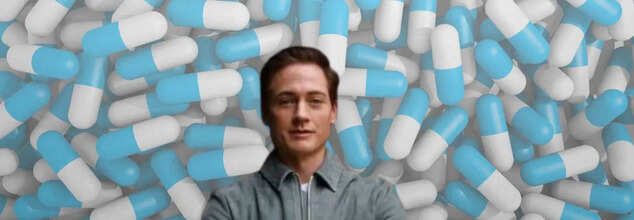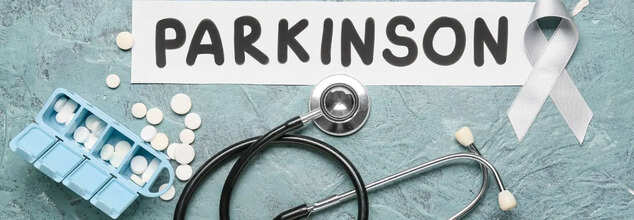
The Best Antiseptic To Use On Open Wounds, According To Experts
Whether they’re small paper cuts or deep scrapes across your knee, leaving a wound untreated can lead to a lot of pain later on if it gets infected. Traditionally in India, we used to turn to natural ingredients like haldi for treating these wounds. However, nowadays, you might be more inclined to look to modern medicine for a cure. Here are some of the best antiseptics recommended by experts for open wounds.
Can Antiseptics Be Used On An Open Wound?
When it comes to manufactured creams, however, you need to be wary of what you use on an open wound, as there are some ingredients that could be potentially harmful. Although the FDA has a list of these antiseptic ingredients available publicly, there’s only one of them that is actively being used in antiseptic cream today: triclosan.
When these creams are used repeatedly, it could possibly annihilate healthy cells and actually slow your healing process. Do also bear in mind that if the wound is too severe, like in the case of burns or quarter-inch-deep wounds, it’s better to go to a medical professional.
What Are The Best Over-The-Counter Antiseptics For Open Wounds?
Biguanides: These are antiseptics that have been in use for over 30 years, primarily including chlorhexidine. They can specifically be used for treating mouth or skin infections and sore throats. In general, these can be in the form of mouthwash, skin cream, or a lozenge
Peroxides: These antiseptics are much less potent, with some like hydrogen peroxide being used to prevent infections that are less severe. Some people also use them to rinse their mouths, while dealing with sores in the case of a mouth infection
Iodine: This bears a reputation as one of the most effective antiseptics when it comes to reducing the risk of infection. It’s incredibly effective at disinfecting most wounds and specialises in antimicrobial cleansing.
These antiseptics have specifically been approved by the Food and Drug Administration of America and are specifically designed to disinfect the skin, which is why they are more appropriate and have less risk associated with them.

Credit: Canva
Bryan Johnson Quits Longevity Drug After It Accelerated Its Ageing
US tech billionaire and anti-ageing advocate Byran Johnson has revealed a major miscalculation involving a drug he once believed was a cornerstone of his protocol: Rapamycin. He said that the immunosuppressant, originally developed for organ transplant patients and now touted in anti-ageing circles, was something he had been experimenting with for five years. However, instead of reversing his age, it resulted in some serious.
Inspired by a 2009 study that showed rapamycin could extend the lifespan of mice by up to 14%, along with a 2023 human trial where 65% of participants reported feeling healthier while on the drug, Johnson began carefully fine-tuning his dosage in hopes of maximizing benefits while minimizing risks.
But instead of enhanced vitality, the tech entrepreneur began noticing a series of unsettling side effects like:
1. Mouth Ulcers
2. Delayed Wound Healing
3. Elevated Cholesterol
4. Spike In Blood Sugar
5. Rise in Resting Heart Rate
What Does Science Say?
Recently, a study conducted on the same by Yale University researchers supported Johnson's view, stating that the drug might accelerate biological ageing. Researchers identified 16 adverse effects on epigenetic markers (biological indicators tied to ageing), raising serious concerns about Rapamycin's long-term use as a longevity enhancer.
While Johnson concluded that he has stopped taking rapamycin, he underscored that this isn't a defeat but rather a strategic pivot. "This is not the end-this is a reset," he said. "It's important to share both wins and failures. That's how progress is made."
What Is Rapamycin?
Rapamycin is an immunosuppressant (medication that reduces the body's immune response) commonly used for organ transplant patients to prevent organ rejection. It is also called sirolimus and has been previously shown to extend the life span in multiple models. According to Essential Interventional Cardiology, it is a natural macrocyclic lactone that binds to specific cytosolic proteins called FK506 binding protein, which blocks G1 to S cell cycle progression by inhibiting the activation of a protein known as mTOR (mammalian target of rapamycin).
Johnson Is Building New Religion
This comes as the 47-year-old announced that he is building a new religion that is aimed at saving human life. In a series of X posts, Johnson introduced his new ideology, "Don't Die", which he believes is the key to human survival and aligns artificial intelligence (AI) with humanity's best interests. "Don't Die is the next great framework. It's how we transition into the era of AI and solving death," he wrote in one of his posts. The tech millionaire also announced the launch of his new app and urged people to be a part of it to become those who can be "admired and respected" by the 25th century.
"Dear humanity, I am building a religion. Wait a second, I know what you're going to say. Hold that knee-jerk reaction and let me explain. First, here's what's going to happen: + Don't Die becomes history's fastest-growing ideology. + It saves the human race. + And it ushers in an existence more spectacular than we can imagine. It is inevitable. The only question is: will you be an early or late adopter?" he wrote.

(Credit-Canva)
Gen Z Finds It Difficult To Have Face-To-Face Conversations: Study
“It would be so much better if I could get some work done while talking to my friends and catching up.” It had been a while since I saw my friends, and while I was thinking about what we can do when we meet, I had this thought. Afterall, what is a person supposed to do when one conversation ends? Sit in silence? That was a foreign concept to me, as nothing makes me more anxious or awkward than having nothing fill the silence.
While parents often urge their children to spend time without their phones, most of them believe it is harmless to check a message between conversations or fidget with their phones like opening to check social media and closing it just as quickly. To find why a lot of young adults and teens do this, researchers did a study that found an interesting fact about Generation Z and how they view conversations.
A new study found that most young adults in their 20s have a hard time paying attention when talking to someone in person. They often reach for their phones in just over two minutes. The survey looked at 2,000 people aged 18 to 28 and showed how using phones too much is affecting how long they can focus, how they act in real life, and how they feel mentally.
Why Can’t Gen Z Focus On Simple Conversations?
The research, done by AXA UK for their yearly Mind Health Report, said that almost 40% of these young adults feel a really strong need to look at their phones while talking to someone. The things that distract them the most are checking messages, looking at social media, and watching videos on YouTube. They also said that alerts from calls, WhatsApp, and social media are the hardest to ignore.
The study also found that almost 4 out of 10 young people think talking to people in real life is "boring." Most of them said they have trouble just dealing with real-life talks. They often use their phones to get away from what's happening, especially when they're at parties or hanging out, talking to their friends, and even when they're talking to their moms and dads.
For some of these young people, being so dependent on their phones is a big deal. More than one-third said they feel really uncomfortable when they don't have their phone nearby. Also, almost 3 out of 10 said that being without their phone makes them feel anxious or nervous.
Using Too Much Phone Leads To Loss In Focus
22% Gen Zs said that excessive use of phones makes it hard for them to pay attention and get things done. The study also showed that social media is a big reason why they don't feel good mentally. 33% of them said that comparing how they look to other people online makes them feel bad about themselves. For another one-third, looking at social media right before going to sleep makes them feel worse mentally. The CEO of AXA UK & Ireland, Tara Foley, said she is very concerned about these results and how using phones might be hurting young people, “Phones give us a hit of dopamine which is hugely powerful, especially on younger minds that are still developing. It’s unsurprising so many parents are worried about the impact phone use could be having on their children.”
Why We Must Teach Good Phone Habits
Dr. Papadopoulos, Psychologist and Broadcaster, said this could mean having times in the morning and evening when they don't use their phones, turning off some of the alerts that pop up, or doing things every day that don't involve looking at screens and where they are really paying attention to what's happening around them. Tara Foley added that she hopes this study will make everyone work together to find ways to help young people be stronger and feel better mentally.

Credit: Canva
World Parkinson's Day: These 5 Supplements Can Help In Managing This Neurological Condition
Parkinson's disease is a neurogenerative disorder that predominately affects the dopamine-producing (dopaminergic) neurons in the brain. People suffering from it face problems in motor movement, tremors, stiffness, and impaired balance. As symptoms progress, people may have difficulty walking, talking, or completing other simple tasks.
World Parkinson’s Day is observed on April 11 every year to address growing concerns about this condition. This health event aims to raise awareness about the disease, support those affected with it and advocate strategies in research and treatment.
While there is no cure for these diseases, there are definitely a few supplements that can help you manage the symptoms of them. Eating a wholesome and varied diet offers people with this disease a vast reserve of nutrients, including vitamins, minerals, and antioxidants to augment overall health. However, a few supplements may help manage its symptoms. Thus, it becomes important to seek advice from your healthcare provider before starting any new supplementation.
Here Are 5 Supplements That Help You Manage This Neurological Condition
Coenzyme Q10 (CoQ10)
Coenzyme Q 10 is a powerful antioxidant that may support mitochondrial function and protect against neurodegeneration. Studies have revealed that supplementation with CoQ10 may help slow the progressive impairment of the brain. Fatty fish, meats and whole grains contain coenzyme Q10, which improves brain function and cognitive health. It is readily available in the form of supplements.
Vitamin D
Vitamin D deficiency is common among the elderly, and people with Parkinson’s disease are at a higher risk. Deficiency of vitamin D is also known to increase disease severity and progression. People suffering from this condition should consult with a healthcare provider to evaluate their vitamin D levels. If deficient, the doctors may recommend vitamin D supplements to manage bone health and improve neuroprotective functions.
Omega-3 Fatty Acids (Fish Oil)
Several pieces of evidence have disclosed that omega-3 fatty acids may be a valuable nutrient for people with Parkinson’s disease. They benefit a person by combating inflammation, promoting neuron growth and health and preventing free radical oxidation. While its anti-inflammatory actions support brain health and ease symptoms of Parkinson’s disease.
Vitamin C
Vitamin C is a powerful antioxidant that can decrease levels of reactive oxygen species (ROS or free radicals). High levels of ROS can result in oxidative stress and increase the risk of inflammation and cell damage. A study found that vitamin C deficiency may be related to Parkinson’s disease, and supplementing with vitamin C may promote brain function and manage symptoms.
B Vitamins
B complex vitamins are essential for memory and coordination and help manage symptoms related to Parkinson’s disease. Studies found that people with Parkinson’s disease were deficient in vitamin B6 and B12 12, and supplementation supported the regulating the condition.
Is Parkinson's Disease Infectious?
Researchers do not deny that infections can lead to Parkinson's disease. However, more evidence is required to establish a connection between the two. At present, scientists are investigating a range of viruses and infectants to find their link with Parkinson's disease. The list encompasses:
- Epstein-Barr
- influenza A (flu)
- varicella-zoster
- herpes-simplex
- West Nile
- HIV
- Hepatitis C
© 2024 Bennett, Coleman & Company Limited

